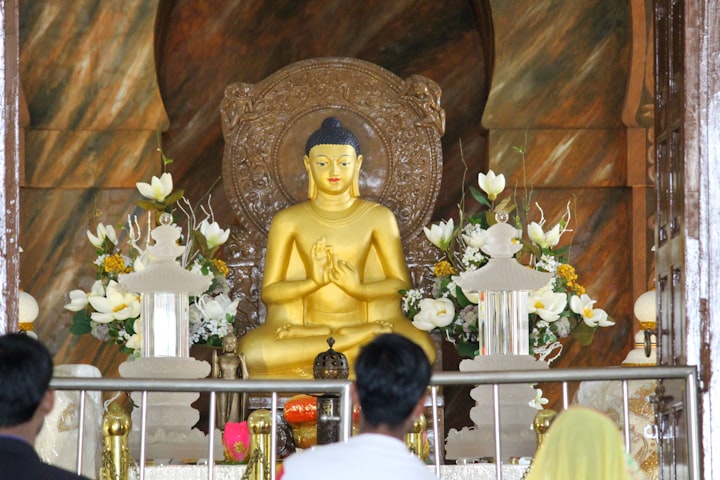Jainism
Religion and philosophy that originated in ancient India around the 6th century BCE

Jainism is a religion and philosophy that originated in ancient India around the 6th century BCE. It was founded by Mahavira, a spiritual leader who is considered to be the last and most important of the Tirthankaras, or spiritual teachers, of Jainism. Jainism has had a profound impact on the world, influencing the beliefs and practices of millions of people across India and beyond.
The central teachings of Jainism are encapsulated in the principles of ahimsa, or non-violence, and anekantavada, or non-absolutism. Ahimsa is the principle of non-violence towards all living beings, and is the foundation of Jain ethical conduct. Anekantavada is the principle of non-absolutism, or the idea that reality is complex and multifaceted, and cannot be reduced to a single perspective or viewpoint.
Jainism teaches that all living beings, including humans, animals, and even plants, have souls and are subject to the cycle of birth, death, and rebirth, known as samsara. The ultimate goal of Jainism is to achieve liberation from samsara and to attain moksha, or spiritual liberation, which is achieved through the practice of ethical conduct, meditation, and the cultivation of knowledge and wisdom.
Jainism has many unique practices and beliefs, including the principle of aparigraha, or non-possessiveness, which emphasizes the importance of renouncing material possessions and living a simple and ascetic lifestyle. Jains also practice the principle of anekantavada, or non-absolutism, which encourages the cultivation of multiple perspectives and the avoidance of dogmatism and intolerance.
Jainism has many different schools and traditions, each with their own unique practices and beliefs. The two main branches of Jainism are Digambara and Svetambara. Digambara Jains believe in the necessity of complete renunciation of material possessions and believe that spiritual liberation can only be achieved by men. Svetambara Jains, on the other hand, believe that spiritual liberation can be achieved by both men and women, and practice partial renunciation of material possessions.
Jainism has had a profound impact on the cultures and societies of India. Jainism played a significant role in the development of ancient India, particularly in the fields of philosophy, mathematics, and architecture. Jainism has also influenced Indian art and literature, and the Jain community has produced many influential scholars and thinkers throughout history.
One of the most famous symbols of Jainism is the image of the Jain tirthankara, or spiritual teacher. Tirthankaras are depicted seated in a meditative posture, with a serene expression on their faces. This image has become an iconic symbol of Jainism and can be found in temples and homes throughout India and beyond.
Jainism has also influenced Western thought and culture. In the 20th century, Jainism became popular among Western intellectuals and artists, who were drawn to its emphasis on non-violence and simplicity. Today, Jainism is practiced by millions of people around the world and continues to be a major force in global spirituality.
Jainism has also had a significant impact on science and technology. The Jain community has made significant contributions to fields such as mathematics, astronomy, and architecture, and has developed innovative techniques for water management and agriculture. The study of Jainism and its contributions to science and technology has become an important field of research in academia.
In conclusion, Jainism is a religion and philosophy that originated in ancient India and has had a profound impact on the world. The teachings of Jainism emphasize the principles of ahimsa, or non-violence, and anekantavada, or non-absolutism, and encourage the cultivation of ethical conduct, meditation, and wisdom in order to achieve spiritual liberation. Jainism has influenced Indian culture and society, and has contributed to the development of science and technology. Jainism's emphasis on non-violence has also made it a significant force in global spirituality and activism, inspiring movements for peace, animal rights, and environmental conservation. Overall, Jainism is a rich and complex tradition that continues to inspire and challenge people around the world.





Comments
There are no comments for this story
Be the first to respond and start the conversation.